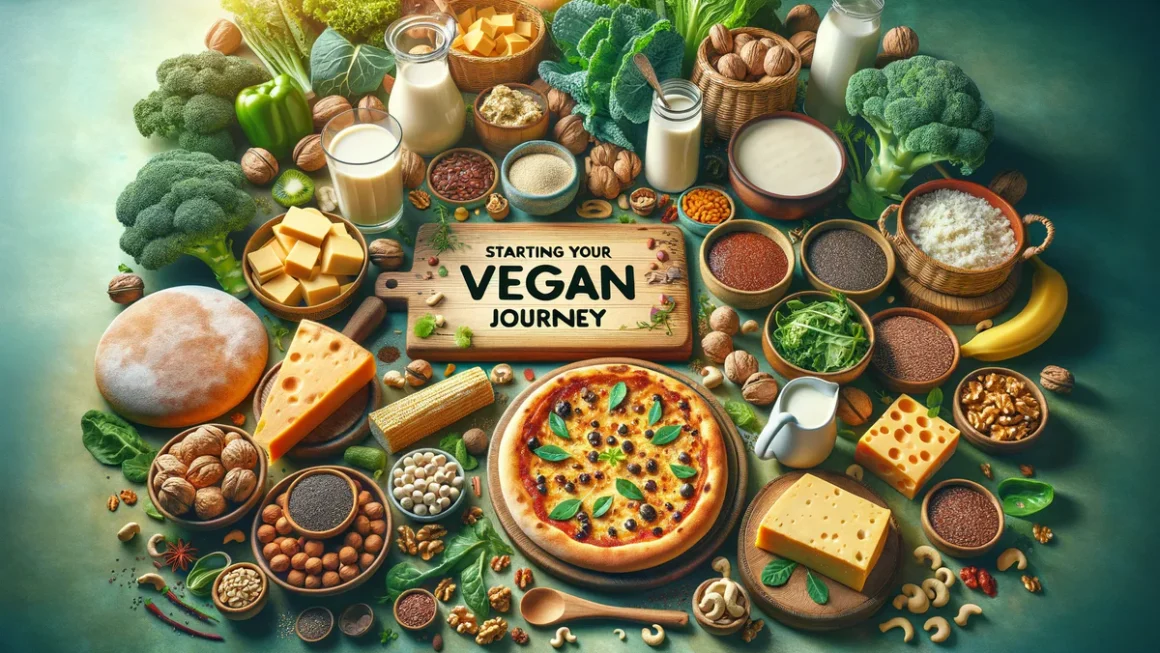The world is witnessing a significant shift in dietary preferences, with more families embracing plant-based diets for a myriad of reasons, including health benefits, animal welfare concerns, and environmental impact. For health-conscious parents, vegetarians, and those advocating for veganism, a common question arises: can children truly thrive on a diet free from animal products? The answer, supported by increasing scientific evidence and expert consensus, is a resounding yes – with careful planning, plant-based diets can absolutely support healthy growth and development in children from infancy through adolescence.
Far from being restrictive, a well-structured plant-based diet for children offers a rich array of nutrients crucial for their rapidly developing bodies and minds. This approach focuses on whole, unprocessed plant-based foods, ensuring children receive everything they need to flourish, fostering robust health for today and a foundation for lifelong wellness.
Nutritional Benefits: Fueling Young Growth
When thoughtfully planned, plant-based diets provide an abundance of essential nutrients vital for children’s growth. Unlike common misconceptions, plant-based sources can supply adequate protein, iron, calcium, and other critical vitamins and minerals.
- Protein: Children require protein for muscle and tissue development. Excellent plant-based sources include legumes (lentils, beans, chickpeas), tofu, tempeh, quinoa, nuts, and seeds. Throughout the day, combining various plant proteins guarantees a full profile of amino acids.
- Iron: While often associated with red meat, iron is plentiful in plants like fortified cereals, lentils, spinach, kale, and dried fruits. Pairing these with Vitamin C-rich foods (e.g., oranges, bell peppers) significantly enhances iron absorption.
- Calcium: Crucial for strong bones and teeth, calcium can be found in fortified plant milks (soy, almond, oat), tofu, collard greens, kale, broccoli, and fortified orange juice.
- Vitamin B12: This is the only nutrient not reliably found in plants and requires supplementation for everyone on a vegan diet, including children.
- Omega-3 Fatty Acids: Important for brain and eye development, these are abundant in flaxseeds, chia seeds, hemp seeds, walnuts, and algae-based supplements.
- Vitamin D: Often obtained from sunlight, mushrooms, and fortified foods like plant milks. Supplementation may be necessary, especially in less sunny climates.
- Fiber: Plant-based foods are naturally rich in fiber, promoting healthy digestion, satiety, and helping to prevent childhood obesity and type 2 diabetes.
Beyond individual nutrients, a diet rich in plant-based foods offers a vast spectrum of antioxidants and phytochemicals, which bolster the immune system and protect against chronic diseases later in life.
Strategic Meal Planning for Growing Plant-based Kids
Successful implementation of a plant-based diet for children hinges on diverse, strategic meal planning. It’s about ensuring a wide variety of whole plant-based foods are regularly consumed across all food groups.
- Emphasize Variety: Encourage children to eat a rainbow of fruits and vegetables, different types of legumes and grains. This broadens the nutrient intake and introduces them to diverse flavors.
- Nutrient-Dense Snacks: Offer frequent, nutrient-dense snacks throughout the day, as children have smaller stomachs but high energy needs. Examples include fruit with nut butter, hummus and veggie sticks, fortified plant-based yogurts, or whole-grain crackers with avocado.
- Fortified Foods: To readily satisfy certain vitamin needs, including fortified plant milks, cereals, and nutritional yeast (for B12).
- Make it Fun: Involve children in meal preparation, make meals visually appealing, and offer familiar foods with plant-based twists (e.g., lentil “meatballs,” black bean burgers).
- Hydration: Ensure adequate water intake throughout the day.
A typical day might include oatmeal with berries and fortified plant milk for breakfast, a lentil soup with whole-grain bread for lunch, and a dinner of tofu stir-fry with brown rice and various vegetables. Between meals, snacks can help bridge the nutritional gaps.
Wrapping Up
Embracing plant-based diets for children is not just a dietary choice; it’s an investment in their long-term health, an ethical stance, and a step towards a more sustainable future. With proper knowledge and diligent planning, parents can confidently provide their children with all the nutrients needed for optimal growth and development. Far from being a niche lifestyle, plant-based eating for children is emerging as a credible, nutrient-rich pathway to fostering healthy, compassionate, and environmentally conscious individuals.
For more in-depth guides, delicious plant-based recipes tailored for kids, and a supportive community, we invite you to explore our blog. Start your family’s plant-based journey today and witness the incredible benefits for yourselves!
Addressing Parental Concerns: Dispelling Myths About Plant-based Diets for Children
Many parents understandably have questions when considering plant-based diets for their children. Let’s address some common queries and provide clarity.
Is a plant-based diet safe for children?
Yes, a well-planned plant-based diet is safe and can be nutritionally adequate for children at all stages of development, from infancy to adolescence. Major health organizations, including the Academy of Nutrition and Dietetics, support this.
What nutrients are important for children on a plant-based diet?
Key nutrients to prioritize are protein, iron, calcium, zinc, iodine, Vitamin B12, Vitamin D, and Omega-3 fatty acids. All of these can be obtained through a diverse whole-food plant-based diet with appropriate supplementation for B12 and possibly Vitamin D.
How can I make sure my plant-based child is getting enough protein?
Focus on protein-rich plant foods like legumes (beans, lentils, chickpeas), tofu, tempeh, seitan, quinoa, nuts, and seeds. A complete amino acid intake can be ensured by combining these throughout the day.
Are there any supplements needed for children on plant-based diets?
Vitamin B12 supplementation is essential for all individuals on a vegan diet. Vitamin D and Omega-3 (from algae oil) may also be recommended, especially if dietary intake or sun exposure is insufficient. It is always advisable to speak with a medical expert or registered nutritionist.
How do I introduce plant-based foods to picky eaters?
Start gradually by swapping out animal products or introducing new plant-based options alongside familiar favorites. Make meals fun and engaging, offer choices, and involve children in cooking or shopping. Persistence and role modeling are key.
Can children on plant-based diets achieve healthy weight and height?
Absolutely. Studies consistently show that children on well-planned plant-based diets reach appropriate weight and height percentiles. In fact, these diets are often associated with healthier weight ranges and reduced risk of obesity.












